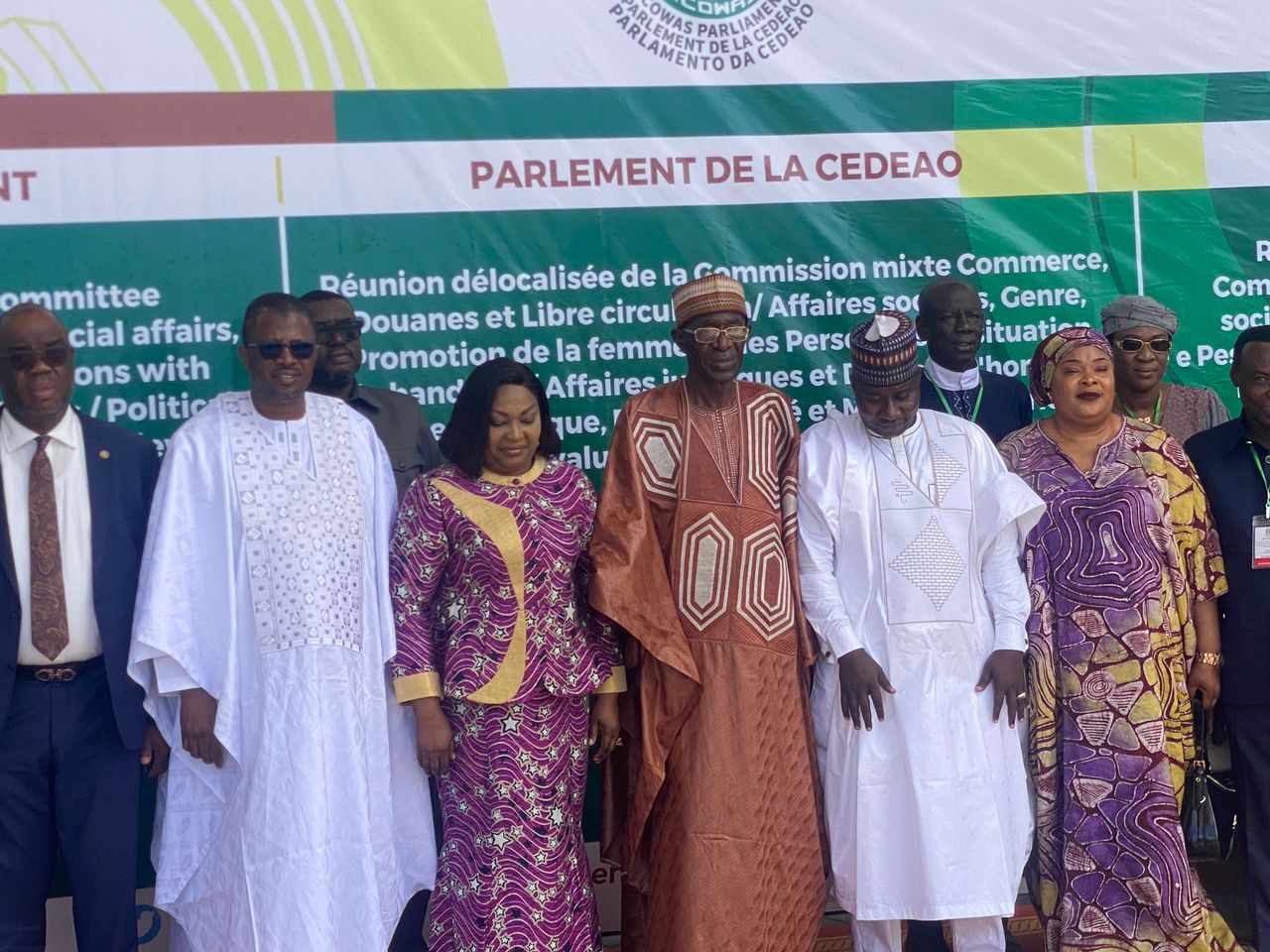News
ECOWAS Parliament Speaker Harps on implementation of Free Movement Protocosl

By Angel-Linda Ike
The Speaker of the Economic Community of West African States (ECOWAS) Parliament Memounatou Ibrahima has charged the member states on the implementation of the free movement protocols to build a strong integration in the sub-region.
Ibrahima gave the charge at the delocalised meeting of the Joint Committee on Social Affairs, Gender and Women’s Empowerment, Legal Affairs and Human Rights, Political Affairs, Peace, Security and African Peer Review Mechanism (MAEP), Legal and Human Rights, Trade, Customs and Free Movement, on Monday, in Banjul, The Gambia.
She Said the backbone of the ECOWAS remains the promotion of cooperation and integration between its Member States. stating that free movement is essential to the achievement of regional integration, that Member States adopted, on May 29, 1975, the Protocol on the Free Movement of Persons and the Right of Residence and Establishment in the Region.

The Speaker said that the full realisation of free movement in the ECOWAS area requires strong governance, based on mutual trust, shared responsibility and ownership of results.
She urged the parliamentarians to put in place mechanism that will ensure constant monitoring for effective implementation of the protocols.
Ibrahima stressed the need for policy makers and stakeholders to unify their efforts to identify challenges and propose solutions that will maximize the benefits of free movement at the regional and national levels.
According to her, the objective will be achieved through the development of coordinated policies and actions.
“The Protocol allows ECOWAS citizens to enter and move freely in Member States without a visa. They can settle and carry out economic activities, subject to obtaining an ECOWAS card or residence permit. These measures facilitate mobility and stimulate intra-regional trade within our space.
” Despite these advances, considerable challenges remain in the implementation of our own choices. In recent years, free movement within the Community has been severely tested by several factors.
” Weaknesses in the implementation mechanism, differences in national interests and infrastructure problems hinder the achievement of the Protocol’s objectives.
” You will agree with me that the full realisation of free movement in the ECOWAS area requires strong governance, based on mutual trust, shared responsibility and ownership of results.
To achieve our objectives, it is imperative to put in place mechanisms that ensure constant monitoring for more effectiveness of our protocols.
“Undoubtedly, the institution best placed to carry out these audits and ensure this balance within the ECOWAS architecture is the ECOWAS Parliament. Unfortunately, the latter is still insufficiently involved in the implementation of the Protocol and its Additional Protocols. This limits its contribution to effective and complete integration.” She stated.
